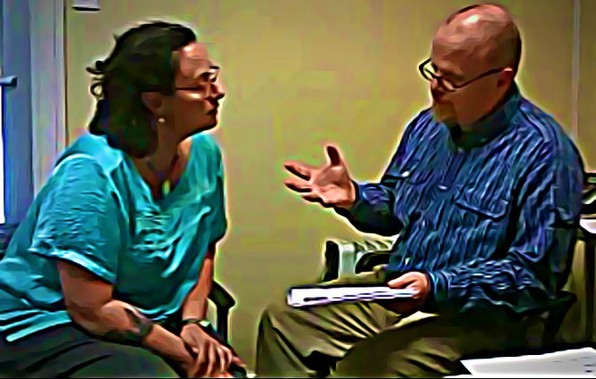Hearing Aid Services: Case History
A thorough "case history" assessment is part of any proper hearing test. Causes of hearing loss are many and are usually quite complex. Information obtained by the hearing professional about both the short-term and long-term medical history of a client helps the specialist decide the best course of action to rectify or rehabilitate the underlying condition.
As a part of the hearing test, the first goal of the client case history is to identify any "red flags" that would point to an underlying condition that may require a physician referral and/or will invalidate any hearing test results. These underlying conditions may be temporal or unstable in nature which means that significantly different test results may be expected over time. In such a case, a referral is made and the hearing test may be rescheduled for a later date, contingent upon doctor approval.
Another goal of the case history is to gain an understanding of what may have caused existing hearing loss which may, in turn, correlate with hearing test results and provide a broader picture of the client's hearing loss.
Finally, the case history helps the specialist understand client preferences based on their lifestyle, activity limitations, or success/failure of prior hearing aid use.
When done right, the case history can take a significant amount of time. However, this time is certainly well-spent in getting to know clients, their motives, needs, and preferences - information that, when properly used, can guide the entire process and offer a greater level of satisfaction with their hearing aids.
UBHearing™ hearing aid services and pricing...
As a part of the hearing test, the first goal of the client case history is to identify any "red flags" that would point to an underlying condition that may require a physician referral and/or will invalidate any hearing test results. These underlying conditions may be temporal or unstable in nature which means that significantly different test results may be expected over time. In such a case, a referral is made and the hearing test may be rescheduled for a later date, contingent upon doctor approval.
Another goal of the case history is to gain an understanding of what may have caused existing hearing loss which may, in turn, correlate with hearing test results and provide a broader picture of the client's hearing loss.
Finally, the case history helps the specialist understand client preferences based on their lifestyle, activity limitations, or success/failure of prior hearing aid use.
When done right, the case history can take a significant amount of time. However, this time is certainly well-spent in getting to know clients, their motives, needs, and preferences - information that, when properly used, can guide the entire process and offer a greater level of satisfaction with their hearing aids.
UBHearing™ hearing aid services and pricing...

